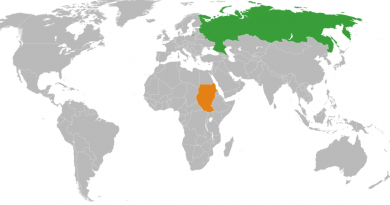Bombings in the Syrian city, Idlib, Seek More Lives as Hospitals are Targeted
Sarah Hyser
Staff Writer
On April 5, warplanes attacked Idlib, a rebel-held region in North-West Syria, killing ten people, ABC reports. 24 people were wounded from the bombing, and several others died while attempting to flee. The bombings put the only remaining hospital in the region with the capabilities to perform surgery out of operation. There is no government-run hospital in Idlib because it is a rebel territory. One doctor was injured while no patients were hurt. On the same day, the Assad regime captured Maaret al-Numan, a city between Aleppo and Damascus, a rebel stronghold and a key territory for Assad’s military campaign. The Syrian campaign remains focused on capturing a major highway in the Idlib region instead of attempting to overtake the highly populated rebel city of Idlib itself.
Reporters believe that the planes responsible for the bombings were Russian planes which are backing the Syrian government. Russia denied these allegations. Reports from The New York Times have connected several previous hospital bombings to the Russian military. Hospitals are not supposed to be attacked according to the Geneva Convention.
UN Humanitarian Affairs and Emergency Relief Coordinator, Mark Lowcock, described the situation in rebel territories to the UN Security Council to be dire. According to Arab News, the UN Special Envoy for Syria, Geir Pedersen addressed the Security Council, claiming that attacks on northwest Syria are unacceptable and cause intense suffering. He further stated that unless there was a complete ceasefire, the situation would only worsen. The UN Emergency Response Fund responded by allocating another $30 million in aid to Syria. The European Union (EU) also addressed the violence, demanding an end to the bombings and a humanitarian line that citizens can use to migrate out of Idlib safely.
Turkey also took a strong stance against the bombings. The attack hit Turkish reinforcements who were stationed in the region to prevent an active conflict, reports the Anadolu Agency. Prior to the bombings, Turkey, Russia, and Iran were participating in a cooperation process to limit violence in Syria. Russia has entered many ceasefire agreements, and the Turkish president views these attacks as a breach of Russia’s commitments.
The current bombings in Syria may persuade the United States and Turkey to reconnect in the conflict, according to the Washington Examiner. The Trump administration sees an opportunity to reinsert itself in Turkey’s foreign affairs, despite the developing relationship between Turkey and Russia. U.S. special representative for Syria Jim Jeffrey delivered a message in Turkey to address the bombings in Idlib, calling the dead Turkish citizens “martyrs.” United States Secretary of State Mike Pompeo also tweeted his condolences for those who passed away.
President Erdogan is seen to be losing political prestige and is relying heavily on his nationalist base. Without a firm response to Russia’s attack, he leaves himself open to political backlash. The Turkish government announced that Syria would face retaliation for the killing of Turkish troops, according to the BBC. On February 10, Turkey responded to the bombings with an exchange of fire that broke the ceasefire agreement from 2018, reports ABC News.
Turkey sent military vehicles and troops to Syria to directly confront Russia claiming that they have the right to respond militarily because they are acting in self-defense. Meanwhile, Russian delegates came to Turkey to discuss bombings in Idlib. The future of the conflict has shifted now that Turkey has broken the ceasefire. The UN reports that 100,000 additional people have been displaced within the last week due to the violence. As the situation continues to develop, many are left uncertain about the future of the civil war.


